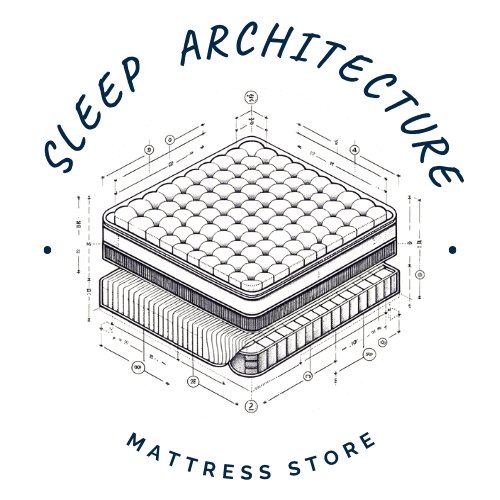
Sleep and Physical Performance: How Quality Rest Enhances Your Body’s Potential

When it comes to achieving peak physical or athletic performance, most people focus on diet, exercise, and physical health. While these elements are crucial, there’s another key factor that often gets overlooked: sleep. Whether you’re an athlete, a fitness enthusiast, or just someone looking to maintain good health, the quality and quantity of your sleep and your sleep performance can make or break your physical performance. Let’s explore how sleep is directly linked to your body’s ability to perform at its best.
1. Muscle Recovery and Growth
During sleep, your body does some of its most important recovery work. Deep sleep stages, particularly slow-wave sleep (SWS), are when your body repairs muscle tissue, restores energy, and releases growth hormone. Growth hormone is essential for muscle development, recovery from strenuous exercise, and injury prevention. If you’re not getting enough rest, your muscles aren’t recovering fully, which can lead to fatigue, soreness, and an increased risk of injury.
2. Improved Reaction Time and Coordination
Physical performance is about more than just strength and endurance—it also involves precision, reaction time, and coordination. Research has shown that sleep deprivation can negatively affect reaction times, hand-eye coordination, and decision-making skills. For athletes or anyone engaged in high-intensity workouts, a lack of sleep can lead to slower reflexes and poor coordination, which can hinder overall performance and increase the risk of accidents or injuries.
3. Endurance and Stamina
Sleep is a powerful tool for enhancing endurance and stamina. Adequate rest allows your cardiovascular system to function optimally, improving blood flow and oxygen delivery to your muscles. When you’re well-rested, you have greater stamina and are less likely to feel fatigued during prolonged physical activities, whether it’s a long run, a challenging hike, or an intense workout session. Without enough sleep, you’ll likely feel sluggish and tire more quickly, limiting your ability to reach your peak potential.
4. Mental Sharpness and Focus
Physical performance isn’t just about how your body feels—it’s also about how sharp and focused your mind is. Sleep plays a crucial role in cognitive function, affecting memory, concentration, and mental clarity. During sleep, the brain consolidates memories and processes information, which is essential for learning new skills or mastering complex movements. If you’re sleep-deprived, your ability to focus and stay mentally engaged during physical activity diminishes, reducing your overall effectiveness.
5. Energy Levels and Mood Stability
We all know that a good night’s sleep leaves us feeling energized and ready to tackle the day. Conversely, lack of sleep can drain your energy reserves and leave you feeling fatigued, irritable, and unmotivated. For those who engage in physical exercise, maintaining high energy levels and a positive mindset is crucial for pushing through challenging workouts. Sleep helps regulate the body’s energy systems and mood, ensuring you’re physically and mentally prepared for your next workout or competition.
6. Hormonal Balance and Weight Management
Sleep is closely linked to the regulation of key hormones that affect physical performance, including cortisol, testosterone, and insulin. A lack of sleep can lead to elevated cortisol levels, which contributes to stress, inflammation, and muscle breakdown. Sleep deprivation also reduces testosterone levels, which play a significant role in muscle building and recovery. Additionally, poor sleep affects insulin sensitivity, making it harder to regulate blood sugar levels, which can lead to weight gain and decreased energy levels.
7. Enhanced Immune Function
Physical activity, particularly intense exercise, can temporarily weaken your immune system. This makes sleep essential for immune function, as it helps restore and strengthen your body’s defenses. When you’re well-rested, your body is better equipped to fend off illness and recover from the physical stresses of exercise. A healthy immune system allows you to maintain consistent training without setbacks from illness or injury.
8. The Importance of Quality Mattresses
Given the clear connection between sleep and physical performance, the quality of your sleep environment becomes critical. A supportive mattress that caters to your individual sleep needs can be the difference between tossing and turning all night or waking up refreshed and ready to perform. Mattresses designed to relieve pressure points, promote proper spinal alignment, and support deep, restful sleep are essential for optimal recovery and performance.
Conclusion: Prioritize Sleep for Peak Performance
The relationship between sleep and physical performance is undeniable. Whether you’re aiming to build strength, enhance endurance, improve coordination, or maintain a healthy body weight, sleep should be at the forefront of your routine. By prioritizing quality rest, you’ll not only improve your physical abilities but also ensure your body is recovering and preparing for the next challenge. So, if you’re looking to reach new heights in your fitness journey, start by optimizing your sleep—and a great mattress is the perfect place to begin.
(Image Courtesy Sleep Foundation)
Send a Message
At Sleep Architecture, we value your feedback and insights. Whether you have questions about our products, want to share your experience, or are ready to book a consultation, we're here to help. Leave a comment, ask a question, or book an appointment today. Your input helps us continue to provide the best possible service to our valued customers. Let's start the conversation!
Contact Us
Give us a call
(330) 954-8007Send us an email
[email protected]